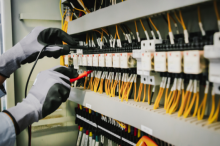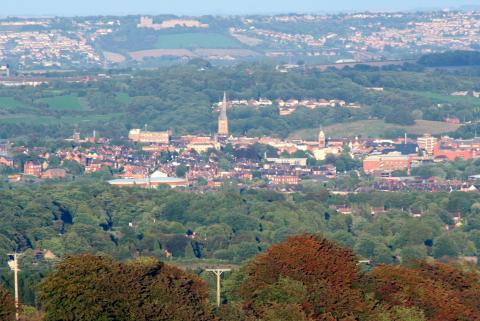Carl here. How are things? I've been thinking a lot recently about renewable energy. In my line of work it's popping up more and more often, and some people are even making money out of it. I thought I'd wright my take on it; 4 Ways To Generate Your Own Electricity.
I've been reading up on renewable energy systems for the home recently, and thought I'd share some of the more interesting bits. It's all about making your own energy so that you not only get it for free, but in some cases electricity companies will actually PAY YOU for the electricity you produce.
I'll include a little info about each one, and then let you know how they compare! Now, the four options are these...
1. Harnessing Solar energy
2. Using the wind
3. Taking heat from the ground
4. Taking energy from water
Solar Panels - these are usually installed on your roof, but some are put in wide open, sunny spaces. The panel basically takes heat from the sun and transfers it into hot water, usually working with your existing system, rather than instead of.
Pros: Hot water when the sun is shining
Cons: If you haven't got a south facing roof, panels are out of the question. You'll also expect to pay upwards of 4K. This industry is suffering from lots of door-to-door salesman promising to do the whole system at largely inflated prices. You might need a new water tank, too.
Photovoltaics - Another type of solar panel. These generate pure electricity, rather than heating your hot water.
Pros: These also come as actual replacement roof tiles, so very handy if you're thinking about replacing the roof. You can also get paid for the energy you produce, even though you could have already used it in your own home already!
Cons: These are even more pricey - depending on the amount you need, you could be looking at anything from around £6K - £20K
N.B. Grants are available but have been slashed in recent times. You should do your research so that you don't pay over the odds on solar.
Wind Turbines - The controversial wind turbine. Some people think they're an eye-saw, others think they look good. Some people say they don't kick out any power, and others say they're great.
Pros: Compared to other renewable energy sources, turbines are fairly cheap. You'll be looking at around £2,000 for a 1kw turbine (the average UK house needs 2.5kw).
Cons: They can be a bit noisy, and shouldn't be mounted on a house for obvious reasons. Most makers of turbines will project performance on a 12 metre per second wind speed, which obviously isn't always achievable. And remember, now wind, no power! You should know that some studies from Warwick Wind Trials say that this technology needs some more development before it's practical.
Heat Pumps - these little guys are a bit more complicated. They work using the same technology as a fridge, taking water and creating heat, and then transferring it to your home with an electrical pump.
Pros: There's not much maintenance involved, and you can apply for some grants.
Cons: This deosn't come cheap. You're looking about £10,000 for an air source system, and more for a ground source system. If you're going to put one in the ground, it's going to involve digging a big hole in the garden. You can find out more at heatpumps.org.uk.
Micro Hydro - Live in an old water mill? This is perfect.
Pros: Unlike sunshine and wind, you've got a more steady supply of power as a river always flows unless we experience a huge drought. There's no need to damn a river here either, so you should have less trouble from your surrounding neighbours!
Cons: The biggest one being that you'll need to live by a river. Costs depend on how much flow you've got to work with, and how much you've got to heat.
Micro Combined Heat and Power (CHP) - A CHP unit is a boiler that also contains a generator to make electricity. Most likely to be found in a community, but poised to be introduced to homes.
Pros: Electricity produced at home is more efficient than that produced in a far-off power station and transported to your door.
Cons: This technology is new to the market. There have been conflicting reports about the efficiencies to be gained by CHP in the home.
What you need to know: That boiler you're using is probably running on gas, so you're still burning a fossil fuel. Further information at whispergen.com.
So there you have it, 4 Ways To Generate Your Own Electricity. I hope that helps. I think that the overriding factor is that if you're going to create your own electricity from scratch, it's going to cost you.
At Stator, we're starting to do more and more of these installations. If you're thinking of doing something like this, give us a call on 0115 971 8874.
Talk soon!
Carl Firmstone
CEO Stator Electrical Solutions Limited
- Log in to post comments















